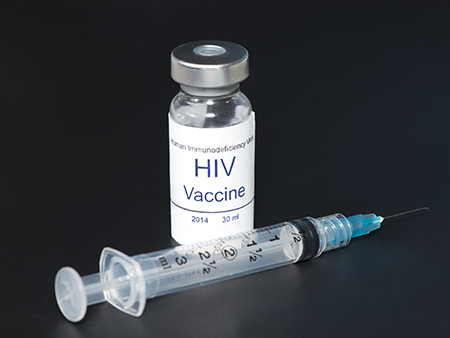World AIDS Vaccine Day, observed annually on May 18, marks a critical day in the global fight against HIV/AIDS. It serves as a reminder of the ongoing efforts to develop a safe and effective vaccine, commemorating the contributions of researchers, volunteers, and advocates who tirelessly work towards this goal.
The Origins of World AIDS Vaccine Day
World AIDS Vaccine Day was first observed on May 18, 1998, inspired by a speech given by then-President Bill Clinton on May 18, 1997. Clinton emphasized the urgent need for an HIV vaccine to control and eventually eliminate the epidemic. His call to action resonated globally, leading to the establishment of this day to raise awareness and mobilize resources for vaccine research.
The Importance of an HIV Vaccine
Despite significant advancements in HIV treatment and prevention, a vaccine remains a crucial tool in ending the epidemic. Antiretroviral therapies (ART) have transformed HIV from a fatal disease to a manageable chronic condition, but they do not cure HIV. Pre-exposure prophylaxis (PrEP) and other preventive measures have reduced transmission rates, but access and adherence remain challenges.
A vaccine offers a sustainable solution by potentially providing long-lasting immunity, reducing new infections, and easing the global burden of HIV. It represents hope for millions of people living with HIV and those at risk of infection.
Progress in HIV Vaccine Research
Research into an HIV vaccine has been challenging due to the virus’s ability to mutate rapidly and its complex interaction with the human immune system. However, significant progress has been made. Notable milestones include:
– RV144 Trial (2009): Conducted in Thailand, this trial provided the first evidence that an HIV vaccine could offer modest protection, reducing infection rates by 31%.
– HVTN 702 (Uhambo) Trial: Building on RV144, this trial aimed to improve efficacy but was halted in 2020 when interim results showed it did not prevent infection.
– mRNA Vaccine Technology: Leveraging advances from COVID-19 vaccines, researchers are exploring mRNA technology for HIV, offering new hope for more effective vaccines.
The Role of Global Collaboration
World AIDS Vaccine Day underscores the importance of global collaboration in vaccine research. Organizations like the International AIDS Vaccine Initiative (IAVI) and UNAIDS work alongside governments, research institutions, and communities to advance vaccine development. Public awareness campaigns, funding initiatives, and volunteer participation are vital components of this collaborative effort.
How to Get Involved
Individuals can contribute to the fight against HIV/AIDS by:
– Raising Awareness: Share information about World AIDS Vaccine Day and the importance of vaccine research on social media and within your community.
– Supporting Research: Donate to organizations dedicated to HIV vaccine development and participate in fundraising events.
– Advocacy: Advocate for policies that support HIV research funding and access to prevention and treatment services.
Conclusion
World AIDS Vaccine Day 2024 is a pivotal moment to reflect on the progress made in HIV vaccine research and renew our commitment to ending the epidemic. Through continued global collaboration, innovative research, and public support, the dream of an effective HIV vaccine can become a reality, offering hope to millions worldwide. By staying informed and engaged, we can all play a part in this vital mission.
Source- ndtvprofit



